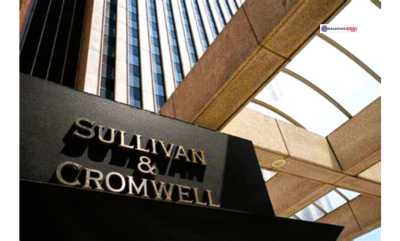

Behind the Facade: FinCEN’s New Crackdown on All-Cash Real Estate Deals and Anonymous Buyers
The Financial Crimes Enforcement Network (FinCEN) published its Final Rule (89 Fed. Reg. 70258), launching a nationwide effort to expose illicit financial activity in the U.S. real estate market. The new regulations mandate reporting requirements for non financed residential property transactions targeting the quiet but powerful corner of the market long exploited by money launderers and anonymous shell entities.
The Target: All-Cash Deals in Disguise
The U.S. real estate market, particularly its high-value all-cash segment, has historically served as a haven for laundering illicit funds. Criminal networks, corrupt officials, and other bad actors have exploited legal loopholes, buying property through shell companies and trusts, often avoiding scrutiny by bypassing traditional financing channels.
Until now, these transactions rarely triggered red flags because they weren’t subject to anti-money laundering (AML) and Suspicious Activity Report (SAR) obligations regulations designed for banks, not closings paid in cash. That gap is now closing.
What the Final Rule Covers
Under the new rule, real estate closers and settlement agents will be required to report specific information about transactions that meet all of the following criteria:
- Property Type: Residential real estate, including homes, condos, cooperative units, and even vacant land intended for housing.
- Financing: Transactions that are non financed i.e., paid in full without a mortgage from a regulated lender.
- Transferee: The buyer is a legal entity or trust, not an individual.
- No Applicable Exemption: The transaction doesn’t fall into exempt categories like transfers due to death, divorce, bankruptcy, or intra-family transfers without payment.
If all conditions are met, the “reporting person” , typically a closing or settlement agent, must file a detailed report with FinCEN.
To streamline compliance, the rule introduces a “cascade” hierarchy, assigning reporting duties based on who performs closing functions: if no settlement agent exists, the obligation passes to the party who prepares the deed or files it.
Pushback from Congress and the Courts
But not everyone is on board. Critics argue the rule imposes undue burdens on real estate professionals and infringes on privacy. In February 2025, lawmakers introduced Senate Joint Resolution 15 and House Joint Resolution 55, aiming to nullify the rule through the Congressional Review Act.
Simultaneously, a lawsuit Flowers Title Companies LLC v. Bessent has been filed in the U.S. District Court for the Eastern District of Texas, challenging the rule’s legality and scope. If either the resolutions or the lawsuit succeed, the rule could be revoked or delayed.
Why This Matters
For decades, opaque property deals have enabled everything from tax evasion to trafficking networks. This rule, while controversial, is designed to strip the anonymity from such deals and inject accountability into real estate markets nationwide.
The stakes are high not just for property professionals but for national security. As FinCEN’s Acting Director has previously warned, “When illicit actors can hide behind LLCs and trusts, they’re not just buying homes they’re buying influence, laundering reputations, and embedding corruption into the heart of our economy.”
What Happens Next?
If the rule survives legal and legislative challenges, it will mark a new era for U.S. real estate, one where closing tables are no longer safe havens for criminal finance. Industry professionals should prepare for increased documentation, reporting obligations, and a new norm where transparency isn’t just expected it’s required.




































